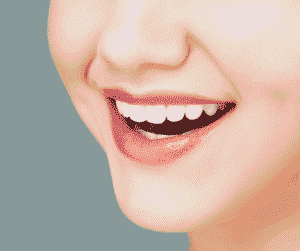We’ve all been there leaning in for a chat and suddenly wondering if our breath is as fresh as we think. Mints and gum can give us a quick boost, but they’re really just covering up the real story. According to a trusted rouse hill dentist if you want lasting freshness, you need to work on the root causes. And the good news? It’s easier than you might think.

Why Bad Breath Happens — And Why It’s Not Always About Garlic
Bad breath (or halitosis, if you want the fancy term) can come from more than just a strong curry or that double espresso. Common culprits include:
- Bacteria overload — Food particles left in the mouth feed bacteria, which release unpleasant-smelling sulphur compounds.
- A dry mouth — Without enough saliva, those bacteria can multiply faster.
- Gum disease — Inflamed gums can trap debris and odours.
- Sinus or throat infections — Post-nasal drip can coat the tongue and throat.
- Digestive issues — Acid reflux can bring unpleasant smells up into the mouth.
Sometimes, the cause can be a combination — for example, coffee in the morning, skipping breakfast, and then not drinking water until lunchtime. That’s practically an open invitation for bad breath.
Your Daily Routine: The Real Fix, Not the Quick Fix
Brushing: Quality Over Force
Two minutes, twice a day, with a soft-bristled brush is the gold standard. Gentle circles work better than hard scrubbing, which can damage enamel and gums. If you wear aligners or dentures, clean them properly as well — odour can cling to them just like natural teeth.
Flossing: Non-Negotiable
Skipping floss is like mopping the floor without sweeping first — you’re leaving behind debris that can smell. Floss once a day to reach spots your brush can’t.
Tongue Care: The Overlooked Step
The tongue’s textured surface is a perfect hiding spot for bacteria. A tongue scraper or even your toothbrush (used gently) can clear away that white or yellowish coating that often causes bad odours.
Hydration: Your Secret Weapon
A dry mouth is a playground for bacteria. Sip water regularly throughout the day, especially if you drink coffee, tea, or alcohol — all of which can be drying. Chewing sugar-free gum can also help by stimulating saliva production, which naturally cleanses your mouth.
If you’re travelling or working in air-conditioned environments, consider keeping a small water bottle on hand. Those environments can dry you out faster than you realise.
Food Choices That Help — And Hinder
Foods That Work in Your Favour
Crunchy fruits and vegetables like apples, carrots, and celery help clean teeth while you chew. Fresh herbs such as parsley, coriander, and mint can give your breath a natural lift.
Foods to Watch Out For
Onions, garlic, and strong spices can linger in your system long after you’ve eaten them, so if you’ve got a big meeting or a date, you might want to rethink lunch. Coffee and red wine can also leave both stains and odours behind.
Mouthwash: A Helper, Not a Hero
An antibacterial mouthwash can help knock down odour-causing bacteria, but don’t expect it to do all the work. It’s most effective after brushing and flossing — think of it as the polish at the end, not the main clean. If you’re prone to dry mouth, choose an alcohol-free formula.
Night-Time Breath Care
Before bed, do a full brush, floss, and tongue-clean routine. Saliva production naturally slows while you sleep, so starting with a clean mouth makes a big difference by morning. If you wake up with a very dry mouth, your dentist can check for sleep-related breathing issues like mouth breathing or mild sleep apnoea.
Lifestyle Habits That Influence Breath
- Quit smoking — Tobacco leaves its own smell and dries the mouth.
- Cut back on sugary snacks — They feed bacteria that cause both odour and decay.
- Manage stress — Believe it or not, stress can reduce saliva flow.
- Stay active — Exercise improves circulation, which supports gum health.
When to Call in the Experts
If bad breath hangs around despite a solid cleaning routine, it’s time to book a dental check-up. Your dentist can spot gum problems, cavities, or infections that brushing alone can’t fix.
In some cases, your dentist might find that the cause is medical rather than dental — and point you towards your GP. Conditions like chronic sinusitis, diabetes, or reflux often have bad breath as a symptom, so catching them early matters.
Summary
Fresh breath isn’t about mints or quick sprays — it’s about consistent habits, smart food choices, and staying on top of your oral health every single day. By cleaning thoroughly, drinking plenty of water, avoiding foods that cause odours, and visiting your dentist regularly, you’re giving your smile the best chance to stay healthy, confident, and ready for any occasion.
The next time you’re face-to-face in conversation, you won’t be worrying about your breath — you’ll be focused on what really matters: engaging confidently, laughing freely, and enjoying every moment without hesitation.

